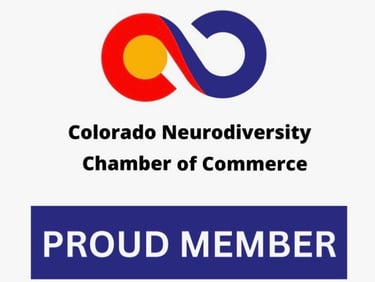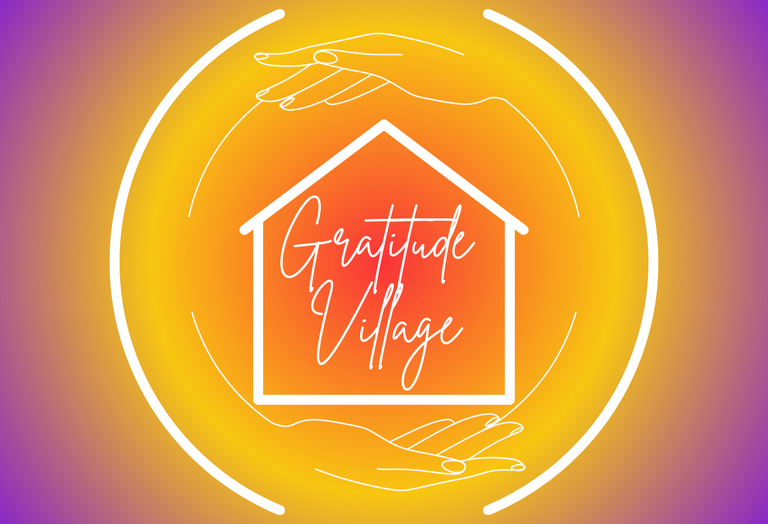Zoom Info Session Thursday February 26, 2026 5:30-6:30PM Mountain Time
The Power of Consensus: How Collective Decision-Making Fosters Trust and Collaboration
In mainstream society, decision-making often follows a top-down model, where authority rests in the hands of a few. In contrast, cohousing communities like Gratitude Village are pioneering a more inclusive and equitable approach: consensus-based decision-making. At its core, consensus invites every voice to the table, encouraging dialogue, deep listening, and shared responsibility. It moves beyond majority rule and instead seeks solutions that everyone can live with—building unity rather than division. In an age where people are increasingly isolated and polarized, consensus offers a powerful antidote by fostering trust, strengthening relationships, and modeling cooperation over competition.
Gratitude Village
7/22/20254 min read


Rethinking Decision-Making in Community Life
In mainstream society, decision-making often follows a top-down model, where authority rests in the hands of a few. In contrast, cohousing communities like Gratitude Village are pioneering a more inclusive and equitable approach: consensus-based decision-making. At its core, consensus invites every voice to the table, encouraging dialogue, deep listening, and shared responsibility. It moves beyond majority rule and instead seeks solutions that everyone can live with—building unity rather than division. In an age where people are increasingly isolated and polarized, consensus offers a powerful antidote by fostering trust, strengthening relationships, and modeling cooperation over competition.
Consensus is more than just a method—it’s a mindset. It assumes that everyone has something valuable to contribute and that the best outcomes emerge when we consider diverse perspectives. For a community like Gratitude Village, which is rooted in intentionality, sustainability, and belonging, consensus isn't just an option—it’s essential. It lays the foundation for how we govern ourselves, resolve conflicts, and co-create a future that reflects our shared values.
What is Consensus and How Does It Work?
Consensus decision-making is a collaborative process in which group members seek to arrive at decisions that everyone can support—or at least accept. This doesn’t mean that every person must enthusiastically agree, but rather that no one has a strong objection that would prevent the group from moving forward. The process typically includes open discussion, clarification of concerns, proposal shaping, and rounds of input to ensure all voices are heard.
Many cohousing communities, including Gratitude Village, practice a specific form of consensus known as sociocracy. Sociocracy is a governance system designed to balance equality and effectiveness. It uses circles (groups focused on specific domains such as food, finance, or membership) that make decisions within their scope, while representatives from each circle connect to the larger whole. This structure creates both autonomy and coherence, allowing decisions to be made efficiently while ensuring that feedback loops exist throughout the system.
Key tools in sociocracy include consent (rather than consensus), rounds for feedback, double-linking between circles, and clear roles and responsibilities. Unlike consensus in its most traditional form—which can sometimes lead to long, drawn-out meetings—sociocracy emphasizes continuous improvement, transparency, and a bias for action, making it a practical and empowering choice for a growing community like Gratitude Village.
The Benefits of Consensus and Sociocracy
Consensus, particularly in its sociocratic form, offers a host of benefits that are especially valuable in an intentional community setting. First and foremost, it builds trust. When people know their voices matter and their perspectives are truly considered, they are more likely to invest in the group and feel a sense of ownership. This trust becomes the glue that holds the community together during both easy decisions and difficult conversations.
Second, consensus encourages collaboration over competition. Rather than pushing for individual agendas or forming factions, community members work together to find creative solutions that address the needs of all. It shifts the focus from winning to listening, and from efficiency at all costs to building something meaningful and enduring.
Third, sociocratic consensus supports distributed leadership. Instead of relying on a single person or small group to make all the decisions, power is shared among those most connected to the work. This flattens hierarchies, encourages initiative, and builds capacity within the community. At Gratitude Village, this means residents can step into leadership roles within circles that align with their passions and skills—whether that's coordinating garden efforts, organizing events, managing the community finances, or shaping policy.
Finally, consensus aligns beautifully with the values of cohousing: mutual respect, interdependence, and shared stewardship. It’s not just about making decisions—it’s about building a culture where people feel safe, empowered, and connected.
Navigating the Challenges Together
While the benefits of consensus are compelling, it’s important to acknowledge that the process can be challenging—especially for those new to collaborative governance. Meetings may take longer than traditional decision-making processes, and reaching alignment can be difficult when strong emotions or differing values are involved. At times, the process may feel slow, and individuals may need to learn new communication skills such as active listening, non-defensiveness, and patience.
However, these challenges are also opportunities for growth. Through the process of learning to make decisions together, communities build emotional resilience, improve their conflict resolution skills, and deepen relationships. Gratitude Village is committed to providing training and mentorship in sociocracy to help residents navigate the process with confidence and grace. Facilitation skills, meeting structures, and shared agreements become part of the community’s toolkit, enabling smoother discussions and more satisfying outcomes over time.
Moreover, with practice and experience, consensus decision-making can become both more efficient and more fulfilling. When people feel heard and respected, they are more likely to support the group’s decisions—even if the final outcome differs from their personal preference. This reduces resistance, builds alignment, and ensures that decisions reflect the wisdom of the whole.
Strengthening Community Through Shared Governance
At Gratitude Village, consensus is not just about making decisions—it’s about practicing a new way of being together. By embracing sociocracy, the community is modeling a future in which people are trusted to govern themselves with care, empathy, and mutual accountability. It’s a bold choice in a world that often defaults to hierarchy and conflict, but it’s also a hopeful one.
In the day-to-day life of the Village, consensus shows up in how we plan our shared meals, decide on landscaping priorities, welcome new members, and steward our resources. It creates a rhythm of communication and collaboration that strengthens our social fabric. Every conversation, every proposal, every circle meeting becomes a chance to reinforce our values and shape a community that reflects our highest ideals.
A Culture of Trust, One Decision at a Time
Ultimately, consensus and sociocracy offer more than just a governance model—they offer a path toward deeper trust, shared power, and lasting collaboration. In Gratitude Village, we are not just building homes—we are building a community where every voice matters, where decisions are made with intention, and where the process is as important as the outcome.
By choosing consensus, we are choosing to slow down, to listen, and to build together. It’s not always the easiest path, but it is one that leads to connection, integrity, and belonging. And in that, there is immense power.
COMMUNITY
Join us in embracing nature, diversity and connection.
Sustainability
DIVERSITY
info@gratitudevillageco.com
720-689-4821
© 2026. All rights reserved.
AFFORDABILITY
Gratitude Village Inc. is a 501(c)3 charitable corporation (public charity) that values diversity, equity and inclusion as essential to our mission. EIN #33-2499522
Subscribe to our Substack
Refund Policy




Gratitude Village is a Proud Member of these organizations
